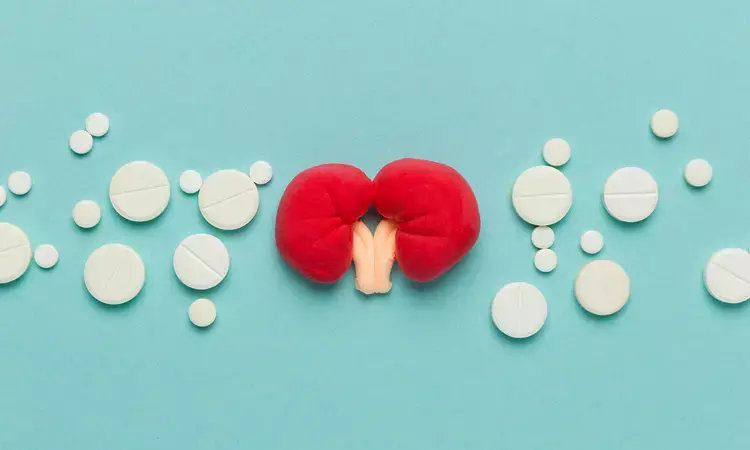- Home
- Medical news & Guidelines
- Anesthesiology
- Cardiology and CTVS
- Critical Care
- Dentistry
- Dermatology
- Diabetes and Endocrinology
- ENT
- Gastroenterology
- Medicine
- Nephrology
- Neurology
- Obstretics-Gynaecology
- Oncology
- Ophthalmology
- Orthopaedics
- Pediatrics-Neonatology
- Psychiatry
- Pulmonology
- Radiology
- Surgery
- Urology
- Laboratory Medicine
- Diet
- Nursing
- Paramedical
- Physiotherapy
- Health news
- Fact Check
- Bone Health Fact Check
- Brain Health Fact Check
- Cancer Related Fact Check
- Child Care Fact Check
- Dental and oral health fact check
- Diabetes and metabolic health fact check
- Diet and Nutrition Fact Check
- Eye and ENT Care Fact Check
- Fitness fact check
- Gut health fact check
- Heart health fact check
- Kidney health fact check
- Medical education fact check
- Men's health fact check
- Respiratory fact check
- Skin and hair care fact check
- Vaccine and Immunization fact check
- Women's health fact check
- AYUSH
- State News
- Andaman and Nicobar Islands
- Andhra Pradesh
- Arunachal Pradesh
- Assam
- Bihar
- Chandigarh
- Chattisgarh
- Dadra and Nagar Haveli
- Daman and Diu
- Delhi
- Goa
- Gujarat
- Haryana
- Himachal Pradesh
- Jammu & Kashmir
- Jharkhand
- Karnataka
- Kerala
- Ladakh
- Lakshadweep
- Madhya Pradesh
- Maharashtra
- Manipur
- Meghalaya
- Mizoram
- Nagaland
- Odisha
- Puducherry
- Punjab
- Rajasthan
- Sikkim
- Tamil Nadu
- Telangana
- Tripura
- Uttar Pradesh
- Uttrakhand
- West Bengal
- Medical Education
- Industry
Hydrochlorothiazide does not alter kidney stone recurrence: NEJM

A new study published in the New England Journal Of Medicine suggests that the frequency of recurrence did not appear to differ significantly among patients with recurrent kidney stones who received hydrochlorothiazide once daily at doses of 12.5 mg, 25 mg, or 50 mg.
One of the most frequent disorders affecting the kidney is nephrolithiasis, which is distinguished by a high risk of recurrence. Although thiazide diuretic medications are frequently used to prevent kidney stones from recurring, there is insufficient evidence to support their superiority to a placebo in terms of effectiveness. Moreover, there are few dose-response data available. Consequently, in order to determine the effectiveness of hydrochlorothiazide in preventing kidney-stone recurrence, Nasser A. Dhayat and colleagues carried out this investigation.
Patients with recurrent calcium-containing kidney stones were randomly allocated to receive hydrochlorothiazide at a dosage of 12.5 mg, 25 mg, or 50 mg once a day or a placebo once daily in this double-blind experiment. Investigating the dose-response relationship for the main outcome, a composite of symptomatic or radiologic reappearance of kidney stones, was the major goal. The definition of radiologic recurrence was the development of new stones on imaging or the expansion of stones that were already present on the baseline picture. Also evaluated was safety.
The key findings of this study were:
416 patients were randomly assigned and monitored for a total of 2.9 years on average.
60 of 102 patients (59%) in the placebo group, 62 of 105 patients (59%) in the hydrochlorothiazide group receiving 12.5 mg, 61 of 108 patients (56%) in the 25 mg group, and 49 of 101 patients (49%) in the 50 mg group experienced a main end-point event.
A main end-point incident did not occur in response to the hydrochlorothiazide dosage (P=0.66).
Those who took hydrochlorothiazide had a higher prevalence of hypokalemia, gout, new-onset diabetes, skin allergies, and a plasma creatinine level more than 150% of the baseline level than patients who got placebo.
Reference:
Dhayat, N. A., Bonny, O., Roth, B., Christe, A., Ritter, A., Mohebbi, N., Faller, N., Pellegrini, L., Bedino, G., Venzin, R. M., Grosse, P., Hüsler, C., Koneth, I., Bucher, C., Del Giorno, R., Gabutti, L., Mayr, M., Odermatt, U., Buchkremer, F., … Fuster, D. G. (2023). Hydrochlorothiazide and Prevention of Kidney-Stone Recurrence. In New England Journal of Medicine (Vol. 388, Issue 9, pp. 781–791). Massachusetts Medical Society. https://doi.org/10.1056/nejmoa2209275
Dr Kartikeya Kohli is an Internal Medicine Consultant at Sitaram Bhartia Hospital in Delhi with super speciality training in Nephrology. He has worked with various eminent hospitals like Indraprastha Apollo Hospital, Sir Gangaram Hospital. He holds an MBBS from Kasturba Medical College Manipal, DNB Internal Medicine, Post Graduate Diploma in Clinical Research and Business Development, Fellow DNB Nephrology, MRCP and ECFMG Certification. He has been closely associated with India Medical Association South Delhi Branch and Delhi Medical Association and has been organising continuing medical education programs on their behalf from time to time. Further he has been contributing medical articles for their newsletters as well. He is also associated with electronic media and TV for conduction and presentation of health programs. He has been associated with Medical Dialogues for last 3 years and contributing articles on regular basis.
Dr Kamal Kant Kohli-MBBS, DTCD- a chest specialist with more than 30 years of practice and a flair for writing clinical articles, Dr Kamal Kant Kohli joined Medical Dialogues as a Chief Editor of Medical News. Besides writing articles, as an editor, he proofreads and verifies all the medical content published on Medical Dialogues including those coming from journals, studies,medical conferences,guidelines etc. Email: drkohli@medicaldialogues.in. Contact no. 011-43720751


